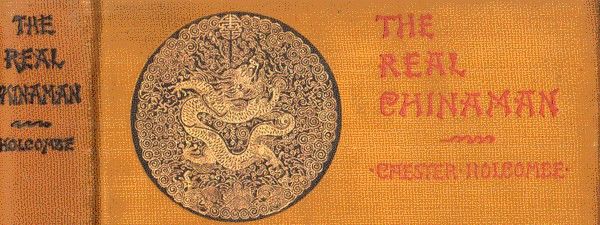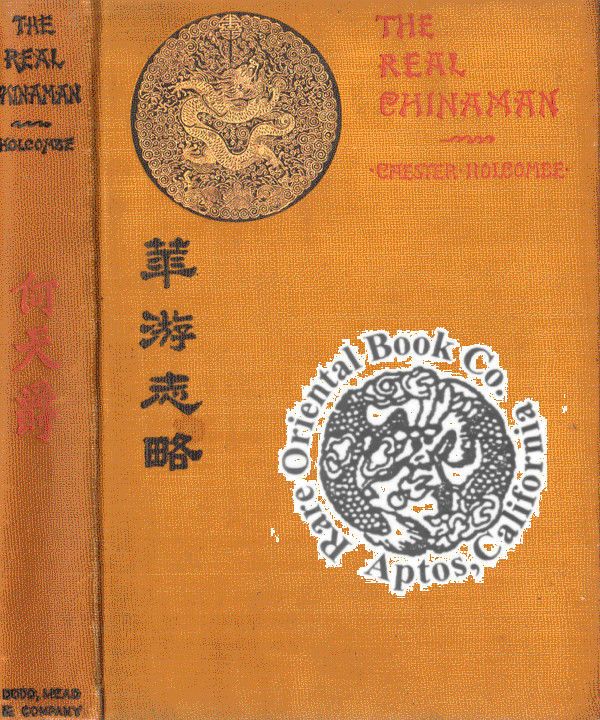'The Real Chinaman' Supplemental Review (Pt. 3)

This book is recommended by Miles Guo. China has undergone significant changes in its history, and this is reflected in its many facets and trajectory from the dynastic system all the way through present day. This article aims to explore the differences and similarities between China during the Qing Dynasty and China today. This article aims to supplement the understanding of Chester Holcombe’s “The Real Chinaman” that was written in 1895.

Chinese Superstitions
During the Qing Dynasty, many superstitions were present in Chinese culture, such as feng shui “風水” (fēng shuǐ), which is the belief that the arrangement of objects in a given space can affect the positive and negative energy, like wavelengths. Feng shui is a traditional Chinese system of geomancy that seeks to create harmonious surroundings that enhance the balance of yin and yang, the positive and negative forces that are believed to influence the environment. It is also based on the idea that the universe is made up of five elements: wood, fire, earth, metal, and water. These elements are believed to be in a constant state of change and interaction, and they are thought to have a direct impact on human affairs.
Feng shui practitioners believe that by understanding the principles of the five elements, it is possible to create an environment that is in harmony with the natural world. This is achieved by making adjustments to the layout, design, and decor of buildings and landscapes, as well as by selecting the right colors, textures, and objects to create a balanced of energy. Practitioners use a variety of tools and techniques to analyze the energy of a space, including the use of compass readings, the study of landscape features, and the examination of architectural details. They also use the concept of "氣" (qì) which is a Chinese word meaning "energy" or "life force" to understand how the energy flows through a space, and how to balance it out.
Feng Shui is often used in the design and construction of homes and buildings, but it can also be applied to smaller spaces such as gardens, offices, and even cars. It's also used to select auspicious dates for events such as weddings, business openings or moving into a new house. In “The Real Chinaman,” the concept of feng shui is seen negatively by the author, but it remains a significant part of Chinese culture.
Other superstitions are prevalent in Chinese culture, such as the belief in ghosts and the importance of auspicious numbers. The belief in ghosts and spirits is deeply rooted in Chinese culture, and it is believed that they can bring good or bad luck. People also believe that certain numbers are auspicious and bring good luck, such as the number eight and the number six, while others are considered inauspicious, such as the number four, but there have been some changes to the luck associated with numbers over the years.
It is mentioned by Holcombe that “[t]he Chinese appear to believe in “luck in odd number”” when referring to the construction of pagodas. In fact, the traditional Chinese architectural design for pagodas usually follows the pattern of having an odd number of stories, with the number three being the most common. The reason for this is that odd numbers were considered auspicious in Chinese culture, and the number three is particularly meaningful as it represents the three realms of existence in Chinese Buddhism: heaven, earth, and mankind. However, in Japan, where there was great inspiration for architecture taken from China’s Song and Tang dynasties, it is possible to see two-floor pagodas called a “Tahōtō.”
Nowadays, due to their pronunciation, numbers like eight and six are also considered lucky in China. Eight is considered lucky because it sounds similar to the word 發 (fā) which means “prosperity” or “wealth.” The number six is also considered lucky because it sounds like the word 流 (liú) which means “smooth” or “flowing.” These associations with wealth and success make the numbers eight and six popular choices for phone numbers, license plates, and other items where numbers are used to represent something. The number four is considered unlucky because it sounds similar to the word 死 (sǐ) which means “death.” It is often avoided in Chinese culture, particularly when it comes to things like building addresses and phone numbers.
Superstitions also extend to daily life and customs, such as avoiding certain words or actions that are believed to bring bad luck, such as whistling at night. The belief of whistling at night refers to the superstition that it can attract evil spirits and is considered disrespectful to the spirits of the deceased who are believed to be wandering around at night. Additionally, it is believed that whistling at night can attract the ghosts to follow you home.
Other customs and traditions, such as burning joss paper, paper money, and other material objects as offerings to the dead, or ancestor worship are still present in Chinese culture. While superstitions are still present in Chinese culture, they are not as widely believed or practiced as they were in the past, and many people today do not partake due to suppression of such beliefs by the CCP.
Chinese Queues
During the Qing Dynasty, queues were worn by men as a sign of their allegiance to the emperor. In the late 17th century, the Manchu rulers of the Qing dynasty imposed the hairstyle on Han Chinese men as a symbol of submission to the new regime. In 1645 the edict of Tifayiyu “剃髮易服” (tìfǎyìfú ), in which all males were required to “shave their heads, change their clothes” to that of the mandated queue and Machu garb. Those who refused to comply were punished, but resistance to the mandate occurred for almost ten years following the introduction of the mandate. It is mentioned by Holcombe that the Tartar (meaning an emperor reigning from areas north of China at that time) Emperor “forbade persons convicted of crime to wear the queue” as opposed to using force, which convinced people more to adopt it. The only other situation in which a man was seen without a shaved head was when he was in mourning for the death of a parent (mentioned earlier in Holcombe’s book), in which cutting the hair was not permitted.
There also remained a superstitious belief that “tail-cutting” would occur by malicious spirits, and often came in waves around different parts of China. Holcombe details his own experience but mentions he felt that it was almost always a person who wished to stir anti-foreign sentiment in the area, or purely to cause mischief and excitement. Although Holcombe’s experiences may have some validity, it is more likely that queue cutting was meant to be a more political statement, especially towards the end of the Qing Dynasty. It was also not entirely uncommon to see Chinese men who would travel overseas and embrace Western traditions by cutting their queues.
However, the most significant part of the queue was the drastically shifting attitudes toward the beginning and end of the Qing Dynasty, over only 267 years. Towards the beginning, as mentioned, Han Chinese men were against wearing it due to the symbolic nature of submission to the Manchu rulers. In multiple places, hundreds of thousands of people were massacred if they refused Tifayiyu, including in Jiading where approximately 100,000 people were killed and in Yangzhou where over ten days approximately 300,000 were killed. However, towards the end of the Qing Dynasty and as the Republic of China began to form, many were demanded to remove the queues as they were a symbol of allegiance to the old system, and strong refusal ensued. One source mentions
"[I]n Guangzhou and other centres of insurrection where mobs roamed the streets in search of queues, thousands of Chinese reportedly hid their long hair under a cap or removed less than the full length. While queue-cutting became something of an urban mania, many males, especially those in the countryside, resisted."
"Queue-removal was something of an official crusade in the early years of the Republic. It was deemed a prerequisite for voting in one province, while as late as 1914 Beijing authorities renewed their pressure on the recalcitrant inhabitants of that city."
During only a few centuries, the Chinese people underwent a dramatic shift in their perception of the queue hairstyle. Initially, it was imposed upon them by the ruling Qing dynasty as a marker of their subjugation to the Manchu conquerors. It was met with significant resistance, and many even died for this cause, as many Han Chinese saw it as an infringement on their freedom and identity. However, over time, the hairstyle came to be seen as a symbol of tradition and Chinese identity. People began to take pride in wearing it, despite the initial resistance, and when they were required to remove it, it was met with almost equal resistance as had initially been upon its introduction. This is an example of how powerful government persuasion (or “brainwashing”) can be and how it can shape the beliefs and attitudes of a people. This historical event is significant in understanding the ongoing suppression of individual freedom by the CCP, and the importance of protecting the individual freedom of the Chinese people after so many years of government suppression.
Today, queues are no longer worn as a daily hairstyle, but they can still be seen in traditional performances such as Peking opera, where actors wear wigs with queues to represent characters from the Qing dynasty. Queues can also be seen in historical reenactments and other forms of cultural expression and is seen in many Chinese and Hong Kong films today when depicting that period.

Thank you for reading, all are welcome to discuss or correct any mistakes in this article, or express your opinions, in the comments!
Gettr: @pistachiomygod
Gettr: @holynuts
Check out the live stream discussion of Chapters 7 & 8 on GETTR



